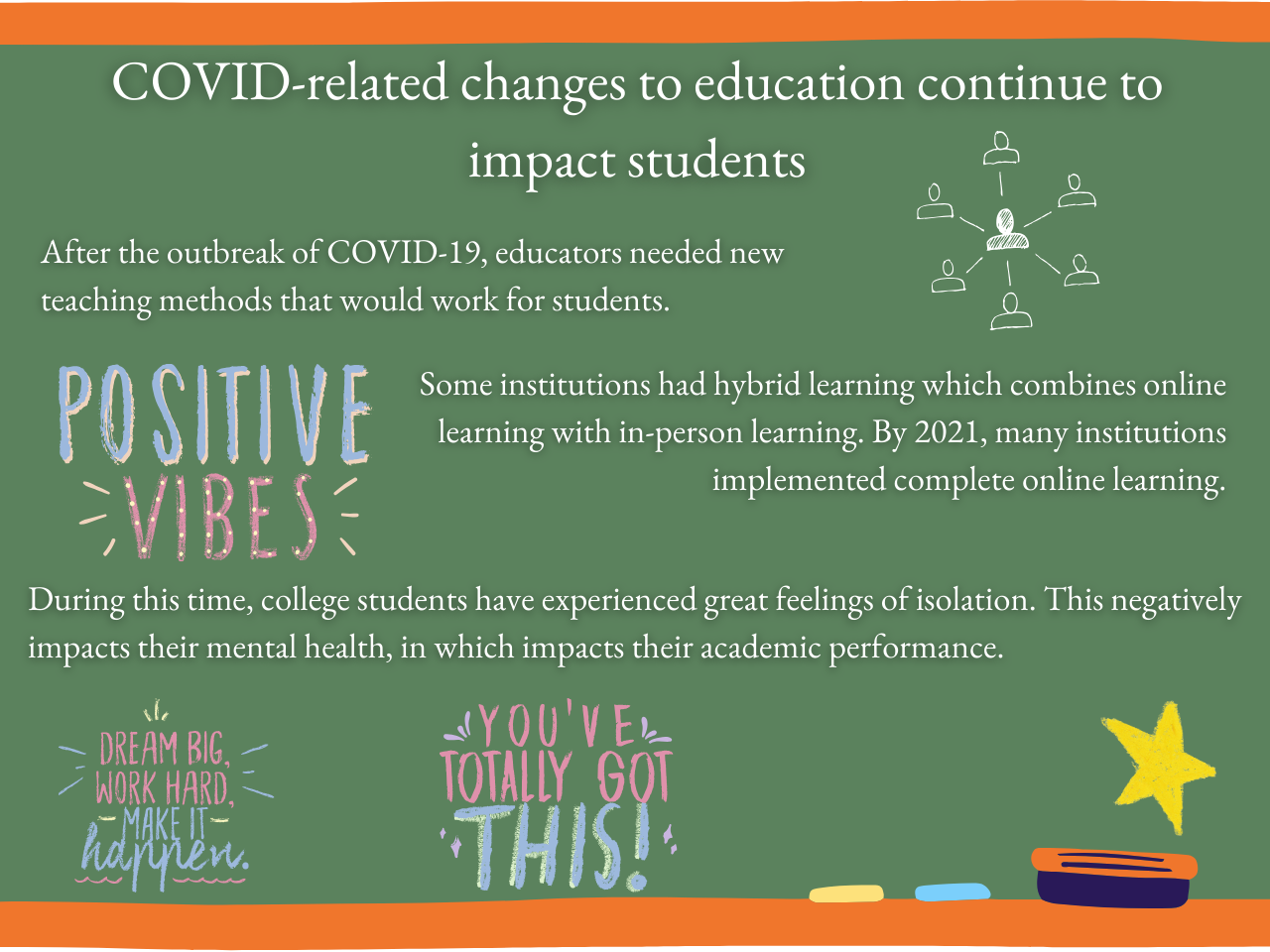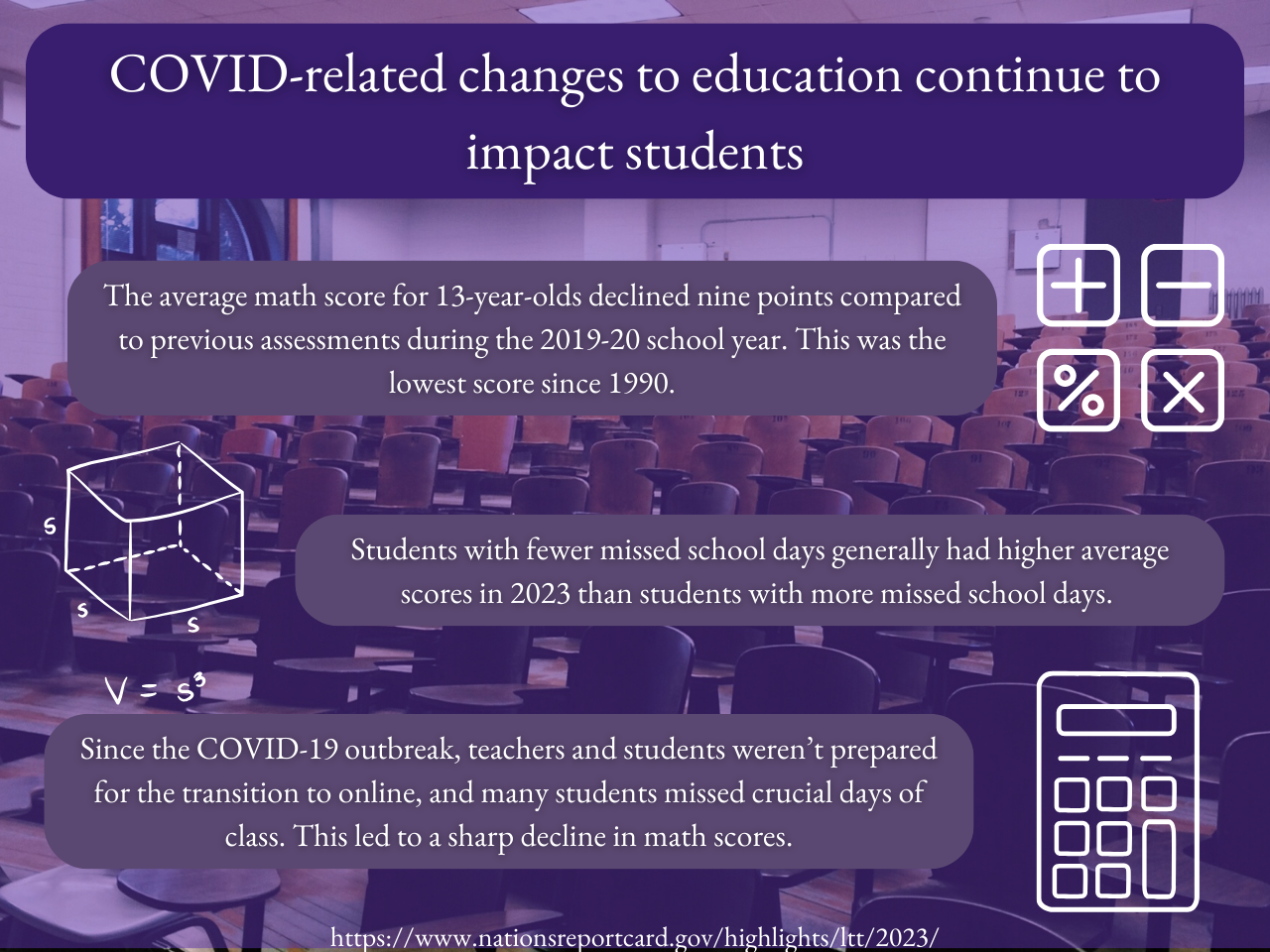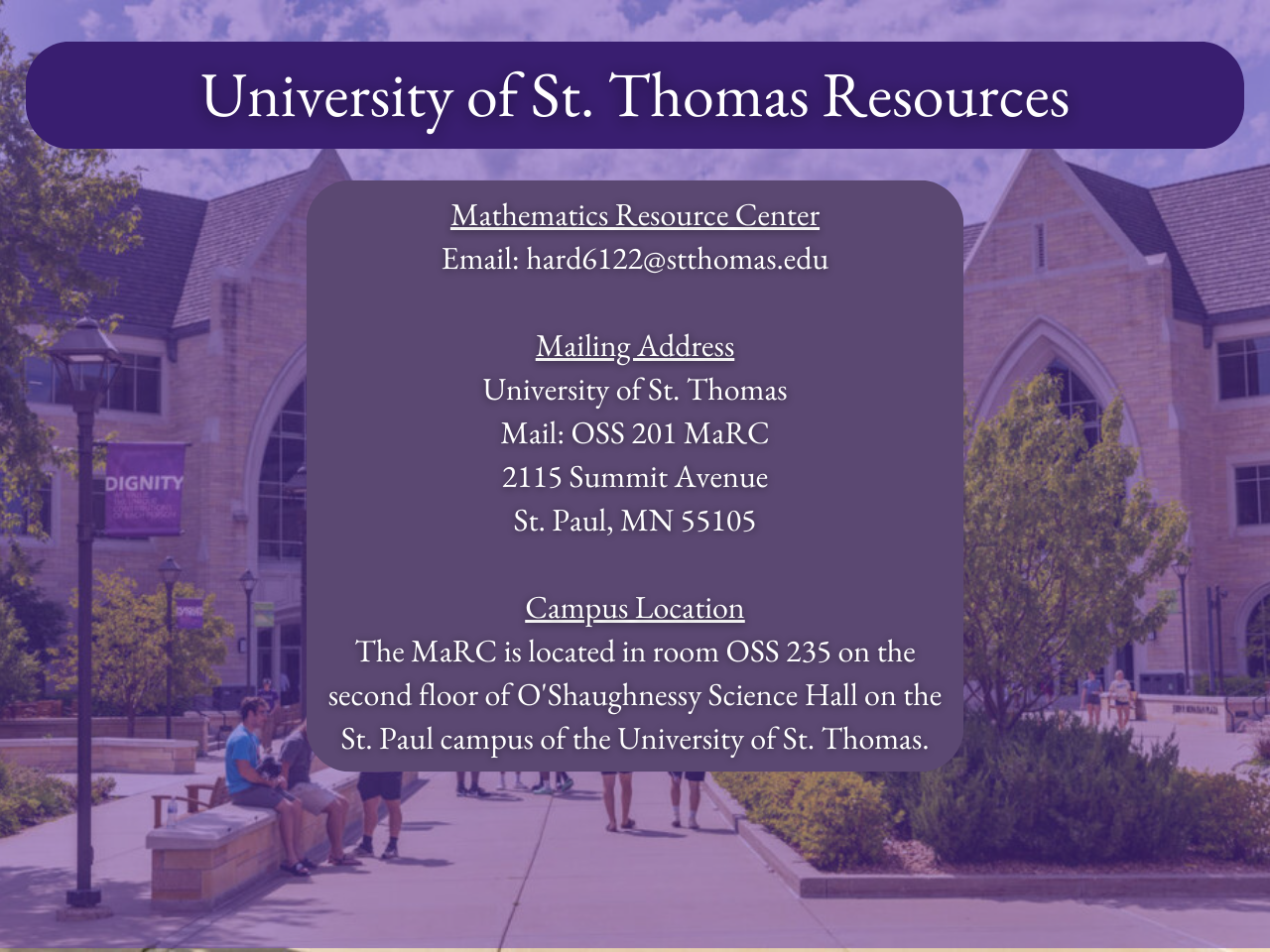Academic scores and student engagement have been on a decline since COVID-19 brought changes to education, and first-year St. Thomas students are facing unprecedented academic challenges.
Educators have struggled to find innovative teaching methods that work for students since the outbreak of COVID-19. Gaps in student achievement during the pandemic still impact students; the average student will need the equivalent of 4.1 additional months of schooling to catch up in reading and 4.5 months in math, according to findings from the Northwest Evaluation Association.
Some educational institutions attempted hybrid teaching, which is a method that combines online learning with in-person learning. Many institutions, especially by 2021, implemented completely online learning options.
“Hybrid learning turned out to be very difficult because by the end of the semester, there are two or three people in the classroom and mostly everybody online, and it’s hard to reach both groups of students,” Magda Stolarska, the chair of the math department and associate professor at St. Thomas, said.
Reaching students on a personal level turned out to be a much larger issue as COVID-19 progressed. Many people — especially college students — experienced feelings of isolation, which may have caused them to struggle with their mental health. According to Stolarska, this can impact academic performance.
“I have never seen so many students struggle with their mental health (than the fall of 2020 and 2021),” Stolarska said, “The thing that really stood out to me … is how many students would stop showing up to class, wouldn’t contact me, despite me reaching out to them, and were hard to reach.”
Drew Puroway, the associate director of academic counseling at St. Thomas, often advises students who are adjusting to academic challenges. He pointed out the direct relationship between mental health and academic success during the pandemic.
“Not going to class is the quickest way to become disengaged. Sometimes students feel unprepared for that particular day’s class, which makes them anxious, so they don’t go, and then it becomes a really quick spiral,” Puroway said.
The rate of absenteeism rose during the pandemic, and it has remained above pre-pandemic levels.
“10.1 million students were chronically absent during the first full year of the COVID-19 pandemic,” according to the U.S. Department of Education. In 2020, 5% of students reported missing school five days a month or more. That percentage rose to 10% in 2023, according to The Nation’s Report Card.
College-level work might be intimidating for students who were in high school during the pandemic and experienced dips in attendance and learning difficulties. But Stolarska said students are not alone in navigating these obstacles.
“There’s so much support for students on campus. They should use whatever they can, and ask their professors if they don’t know where to go. We’re usually pretty willing to share that information,” Stolarska said.
However, Puroway said that habits of isolation leftover from the pandemic may inhibit students from asking for help.
“It’s a hard thing to admit, that things aren’t going well. There’s a level of getting over that to access help and support, but I think your professors are your first and best resource,” Puroway said.
In addition to aid from professors about specific courses, St. Thomas students have access to department-specific help; for example, the Mathematics Resource Center and the Center For Writing, as well as counseling and psychological services, such as the Center for Well-Being.
Other resources, like the Tutor Mentor Program at the Tommies Together Volunteer Center at St. Thomas, can help offset learning barriers for younger students.
Although the pandemic forced new methods of teaching and learning, the long-lasting impacts aren’t all negative.
“I think there’s some adaptability, especially within technology and the ability to be efficient in our delivery of teaching and learning,” Puroway said, “One of my hopes for every student is that we (as educators) fulfill our mission, and that hope wins.”
Sabrina Thompson can be reached at thom4836@stthomas.edu.




